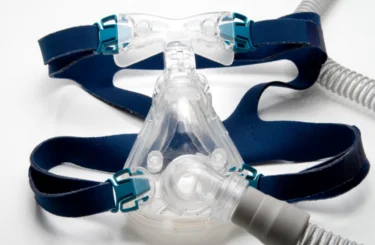The DePuy Artificial Hip Debacle: Part I – The Facts
When U.S. Food & Drug Administration regulations wouldn’t let Johnson & Johnson’s DePuy orthopedic division immediately market an innovative hip replacement device in the United States, DePuy opted to sell it overseas while conducting clinical trials as required by the FDA. At the same time, it launched a similar device in the US by finding a loophole in FDA approval protocols. The entire scheme was legal, but there was only one problem – the two products proved to be defective. Now both DePuy and the FDA have some serious explaining to do.
Here’s the background, according to a recent article in the New York Times…
Unlike standard hip replacement surgeries performed prior to 2003, a new procedure known as a resurfacing allowed surgeons to remove less bone. As an adjunct to this new technique, DePuy developed an articular surface replacement device, marketed under the name “ASR.” Before it could market the product domestically, however, the FDA required the company to conduct clinical trials to support the efficacy the effectiveness of both the procedure and the device. Notwithstanding, DePuy launched the product in foreign markets beginning in 2003; as of 2009, the device had been used in more than 60,000 resurfacing procedures in Europe and elsewhere.
By 2005, DePuy had commenced the clinical trials required by the FDA prior to approval for sale in the US; it was later discovered that the surgeons who participated in the study were selected by DePuy, and even included doctors who helped design the device.
During that period, DePuy obtained FDA approval to sell a second version of the ASR in the US based on an earlier metal cup design used in traditional joint replacement surgery. Under agency rules, because the design was similar to implants already on the market, DePuy received approval without the need for clinical testing. Over the next four years, the company sold approximately 30,000 units.
In August 2009, the FDA sent DePuy a confidential 13-page “nonapproval” letter regarding the ASR devise that the company was marketing overseas. The agency advised that the studies and clinical data did not adequately prove the implant’s safety and effectiveness, and therefore could not be approved for sale in the US. DePuy could continue to pursue approval, but would need additional clinical data take would take at least another year to generate.
At roughly the same time, both ASR models came under fire in light of alleged failures. Doctors both here and abroad as well as doctors in this country were raising concerns about the performance of each design.
In November 2009, DePuy announced that it would discontinue sales of the ASR devices, citing declining sales as the reason, and also announced that it had withdrawn its application for FDA approval to market domestically the model it had been selling overseas. In August 2010, it formally recalled the devices among claims that they were failing at high rates.
What is one to make of all this? Corporate greed? Governmental bureaucracy? Read our next posts to find out more.
Up next… Part II: What Was Johnson & Johnson Thinking?
If you or someone close to you was implanted with the either of the DePuy ASR devices and suffers from ongoing pain or injury, please contact a Michigan medical device lawyer right away to discuss your legal options.
Robert B. Sickels
For more than 30 years, Robert Sickels has successfully represented plaintiffs involved in complex personal injury, medical negligence, and products liability matters.





